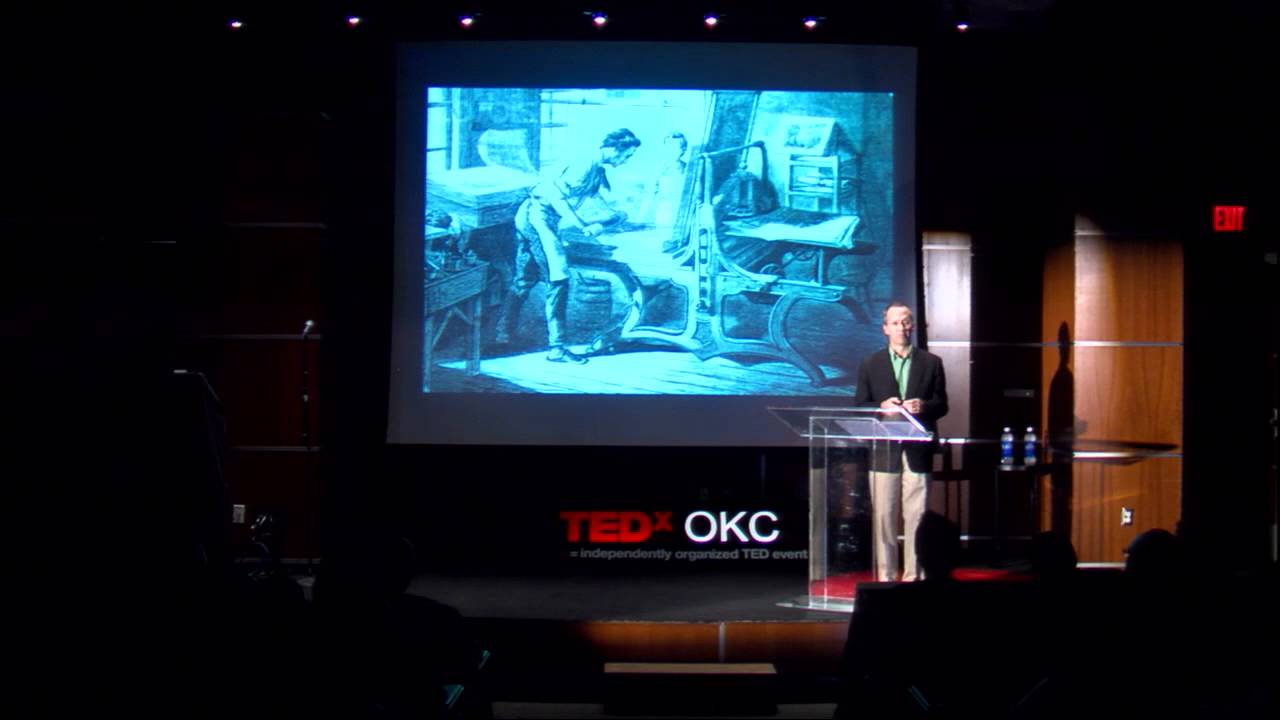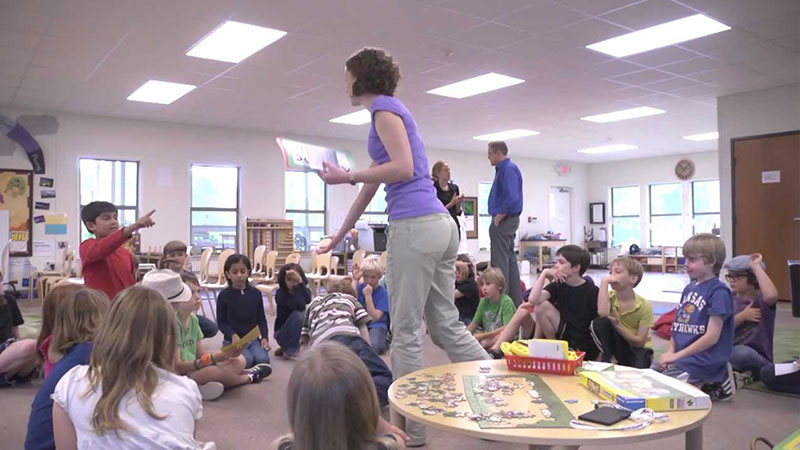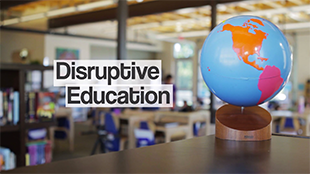
A question we commonly hear at our London, ON, Canada Acton Academy is this: “How is your school different from a Montessori school?”
We relied on the experience of having both of our children attend a wonderful Montessori program as toddlers and pre-schoolers, our own research on this topic, as well as the input from other Acton Academy owners who have also spent time contemplating the answer to this question. We certainly share many values of the Montessori system and care greatly for our friends who run and work in these schools.
A common response to this question from other Acton owners is that Acton Academy is almost like a Montessori 2.0 or Montessori for the 21st Century. While Acton Academies do believe in many of the principles espoused by Maria Montessori (respect of the child, self-learning/freedom of choice, multi-age classrooms, a prepared environment and teachers as guides, to name a few), there are significant differences between the programs as well. It is important to note that not all Montessori schools are officially licenced so there is some variation in the style of programming delivered. Similarly, each Acton Academy is independently owned and operated as well so absolute generalizations cannot be made.
With that in mind, here are some specific distinctions that make an Acton Academy a unique learning environment compared to a Montessori school.
Consistent Progressive Education Goals vs. Focus on Early Years
Maria Montessori seemed to invest her genius in preschool-aged children and early childhood development. Acton owner Kai Olderog had this to say: “She designed it for those ages and placed an enormous amount of trust in children that age to be responsible for their environment and capable of doing amazing work.”
The Montessori programs offered for older children weren’t necessarily developed by Maria Montessori and have been formed by individual programs wanting schooling for higher ages. As a result of this distinction, many Montessori schools add more traditional elements to their programs as the children get older; this actually leads to decreased responsibility in the higher grades. At an Acton Academy, our Hero’s are given more responsibility as they get older and are heavily involved in self-management, leadership, and self-government of their learning environments.
Having said that, our school and many other Acton Academies accept students at age six or seven so we often rely on, recommend, and partner with local Montessori programs for the toddlers and preschoolers who will come to our school at that older age.
The Focus on Mastery and Use of Technology
At an Acton Academy, a large emphasis is on the development of mastery when learning Core Skills (reading, writing, math, and spelling). We utilize tools, at times technology-based, that allow our students — we call them “Heroes” — to learn at their own pace and individually. We continually seek the most efficient ways to enable this, and many Acton Academies incorporate other paper-based tools (Singapore Maths, Writer’s Workshop, for example) to find the best means to achieve our ultimate goal.
Technology is one tool we use to allow this kind of learning to take place. For the most part, Montessori programs have a reflexive policy against the use of technology in the classroom.
Jeff Sandefer, the co-founder of Acton Academy said this about our program: “Acton isn’t pro-technology, but we use powerful game based programs for areas like Math, as well as relying on the internet to bring experts and the world to us. We don’t dismiss technology out of hand. If it’s a useful tool, process or habit, we use it, whether its Khan Academy or a walk in the park.”
Socratic Method vs. Group Discussions
Acton Academies emphasize the use of the Socratic Method in educating our students. This differs from the group discussions led by teachers, which Montessori programs encourage. The Socratic method, with the use of active questioning in order to draw out and clarify one’s thinking, is a vehicle for developing critical thinking skills, stimulating critical reflection, and developing depth of character. Although group discussions are better than lectures, often the teacher is still in the role of ‘expert’ and this can limit the robustness of thought required by the students.
Ability to Apply Learning to the Real World
Real world preparation includes a need to adapt to a place influenced greatly by technology, a continual shift in knowledge, and a rapidly changing landscape. We just don’t know what kind of future our children will face so developing useful skills and a critical thinking approach is extremely important moving forward.
The Acton Academy system is focused on preparing our Heroes to find their own calling in the real world. We continually help our students in this regard in multiple ways:
1. The use of the Hero’s Journey heuristic as a way of using stories as a backdrop for learning, and in understanding that they themselves are on their own journey
2. Bringing in guests to discuss their Hero’s Journey and demonstrate the challenges everyone faces on their life’s path
3. The use of Quests as structured real-world challenges that create real world accountable results, much like project-based work
4. The use of Apprenticeships as Heroes get older to make the world their classroom
5. The focus on entrepreneurship, leadership, and self-management
6. An emphasis on character development and the concepts that allow our Hero’s to do their best – Curiosity, Gratitude, Grit, Growth Mindset, Optimism, Purpose, Self-Control, Social/Emotional Intelligence, and Zest
At an Acton Academy, we continually focus on relating lessons and tasks to the real-world in order to give our Heroes the skills, abilities and confidence to succeed in whatever field they choose. The focus is on the process of learning, not just the content of it, thus enabling them to be ready for whatever the future may bring.
Ongoing Improvement to Achieve our Educational Goals
An Acton Academy has, at its core, the mission to enable our Hero’s to Learn to Learn, Learn to Do and Learn to Be, along their path of finding their own calling. The program has been developed with this goal in mind and therefore there is constant reflection on what is working and what is not, so continual improvements can be made as needed. The Montessori Method is a specific educational philosophy in and of itself, and thus it can be hard to change in a rapidly changing education landscape.
Overall, while Acton Academies do share, respect, and incorporate many of Maria Montessori’s philosophies on children’s education, we do have a number of differences which we feel help our Heroes to best prepare themselves for the future. It comes from the similar desire to do all we can for our next generation but also takes advantage of the recent advances in tools, philosophy and understanding of education in the 21st Century.
Written by Dr. Vineet Nair & Andrea Nair, M.A., CCC – Infinity School: An Acton Academy in London, ON, Canada





